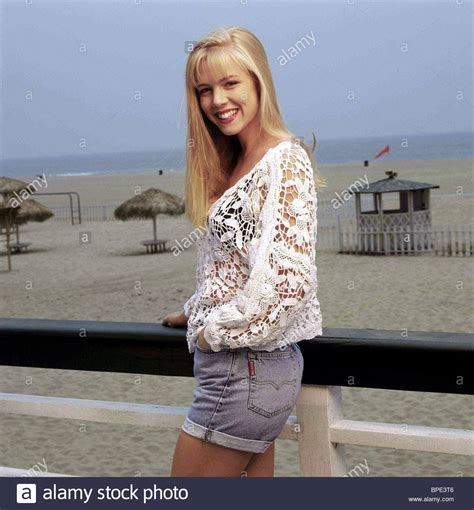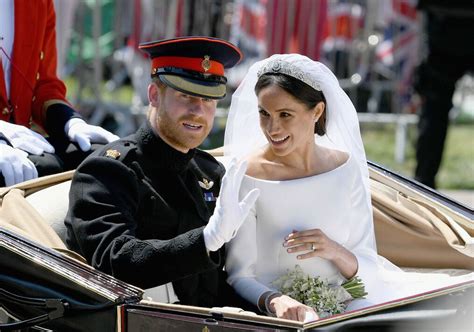
Michael Jordan’s former security guard, John Michael Wozniak, revealed in the ESPN docuseries “The Last Dance” that he sometimes had to manage the Hall of Famer’s interactions with female fans, recalling instances where he would raise his voice when women got too close to the basketball icon.
John Michael Wozniak, a former security guard for Michael Jordan, has shared anecdotes about his experiences protecting the basketball legend, including managing interactions with overly enthusiastic female fans. Wozniak, known for his close relationship with Jordan and featured prominently in the ESPN docuseries “The Last Dance,” recounted instances where Jordan would rely on him to maintain a comfortable distance between himself and admirers. According to Wozniak, these situations sometimes required him to raise his voice to ensure Jordan’s personal space was respected.
Wozniak’s revelations shed light on the intense level of attention Jordan received during his career with the Chicago Bulls. Speaking candidly about his role, Wozniak explained that his responsibilities extended beyond standard security protocols to include navigating the complexities of Jordan’s immense popularity. “I had to yell when girls got too close!” Wozniak stated, emphasizing the need to create a buffer around Jordan, particularly in public settings where he was constantly surrounded by fans.
The anecdotes from Wozniak provide a glimpse into the challenges of managing Jordan’s public image and personal safety. While Jordan’s on-court prowess and endorsement deals contributed to his global fame, they also made him a constant target for attention, requiring a dedicated team to manage his security and privacy. Wozniak’s role was crucial in maintaining a balance between Jordan’s accessibility to fans and his need for personal space.
“The Last Dance,” the documentary series that featured Wozniak, explored Jordan’s career with the Chicago Bulls, highlighting the pressures and demands that came with being one of the world’s most recognizable athletes. The series included interviews with Jordan, his teammates, coaches, and staff, offering an in-depth look at the dynamics within the Bulls organization and the challenges they faced on and off the court.
Wozniak’s contributions to Jordan’s security detail were often understated but essential. His ability to anticipate potential issues and defuse tense situations helped Jordan maintain a sense of normalcy amidst the chaos of his celebrity. Wozniak’s recollections offer a unique perspective on the life of a global icon and the measures taken to protect him from the constant barrage of attention.
The details shared by Wozniak also underscore the changing landscape of celebrity culture and the increasing demands placed on athletes and entertainers. With the rise of social media and the 24-hour news cycle, public figures are under constant scrutiny, making security measures more critical than ever. Wozniak’s experiences with Jordan reflect the broader challenges faced by those tasked with protecting high-profile individuals in an increasingly connected world.
Further elaborating on his experiences, Wozniak highlighted the importance of trust in his relationship with Jordan. He emphasized that Jordan needed to feel secure and comfortable in his presence, which allowed Wozniak to effectively manage potential disruptions. The close bond between the two men was evident in “The Last Dance,” where Wozniak was often seen joking with Jordan and providing him with support during stressful moments.
Wozniak’s role as a security guard was not just about physical protection; it also involved emotional support and a deep understanding of Jordan’s personality and preferences. This multifaceted approach to security allowed Wozniak to anticipate Jordan’s needs and respond accordingly, ensuring his safety and well-being.
The insights shared by Wozniak contribute to a more nuanced understanding of Michael Jordan’s life beyond the basketball court. They reveal the challenges of navigating fame and the importance of having a dedicated team to manage the complexities of celebrity. Wozniak’s stories serve as a reminder that even the most celebrated athletes are human beings who require protection and support to thrive in the spotlight.
The news of Wozniak’s revelations has sparked considerable interest among fans and media outlets, prompting discussions about the nature of celebrity and the responsibilities of security personnel. Many have praised Wozniak for his professionalism and dedication to protecting Jordan, while others have debated the ethical implications of managing fans’ interactions with public figures.
Wozniak’s anecdotes also raise questions about the boundaries between public and private life for celebrities. While fans often seek to connect with their idols, it is essential to respect their personal space and privacy. Wozniak’s role was to ensure that these boundaries were maintained, allowing Jordan to interact with fans on his terms while also protecting his well-being.
The lasting impact of Michael Jordan’s career extends beyond his on-court achievements. His influence on popular culture, marketing, and sports management continues to be felt today. Wozniak’s stories offer a glimpse into the behind-the-scenes efforts that contributed to Jordan’s success, highlighting the importance of teamwork and dedication in achieving greatness.
In conclusion, John Michael Wozniak’s recollections about his time as Michael Jordan’s security guard provide valuable insights into the life of a global icon. His stories underscore the challenges of managing fame and the importance of having a trusted team to protect one’s personal space and well-being. Wozniak’s contributions to Jordan’s security detail were essential in maintaining a balance between accessibility and privacy, allowing Jordan to thrive both on and off the basketball court.
Expanded Context and Background Information:
Michael Jordan’s global fame transcended the sport of basketball, making him a cultural icon and a highly sought-after figure. His unparalleled success with the Chicago Bulls in the 1990s, combined with lucrative endorsement deals, catapulted him to a level of celebrity rarely seen in the world of sports. This intense fame, however, came with its own set of challenges, necessitating a robust security apparatus to manage the constant attention and potential threats.
The era in which Jordan dominated basketball was also a time of increasing media scrutiny and fan engagement. The proliferation of television coverage, coupled with the rise of sports marketing, amplified Jordan’s presence in the public consciousness. Fans were not only interested in his on-court performance but also in his personal life, his endorsements, and his overall image. This heightened level of attention required a proactive approach to security, ensuring that Jordan’s privacy and safety were protected at all times.
John Michael Wozniak’s role as Jordan’s security guard was multifaceted, encompassing not only physical protection but also personal support and management of fan interactions. Wozniak’s close relationship with Jordan, as depicted in “The Last Dance,” underscores the importance of trust and understanding in such a role. He was not merely a bodyguard but a confidant who understood Jordan’s needs and could anticipate potential issues before they arose.
The challenges of managing Jordan’s interactions with female fans were particularly sensitive. As a highly attractive and charismatic figure, Jordan attracted considerable attention from women, many of whom were eager to meet him and interact with him. Wozniak’s job was to ensure that these interactions were appropriate and respectful, maintaining a comfortable distance between Jordan and his admirers. This often involved politely but firmly intervening when fans became too intrusive or when their behavior crossed the line.
The decision to raise his voice, as Wozniak described, was likely a measure of last resort, employed when other methods of de-escalation proved ineffective. In situations where fans were overly aggressive or persistent, a firm verbal command may have been necessary to regain control and protect Jordan’s personal space. This highlights the delicate balance that security personnel must strike between being assertive and maintaining a professional demeanor.
The broader context of celebrity culture in the 1990s also sheds light on the challenges faced by Jordan and his security team. In an era before social media dominated the landscape, public figures still faced considerable scrutiny from paparazzi and media outlets. The constant pursuit of celebrity photos and stories created a climate of tension and required vigilance on the part of security personnel. Wozniak’s role was to navigate this environment, ensuring that Jordan could move freely and safely without being constantly hounded by photographers and reporters.
Furthermore, the rise of celebrity stalking and harassment in the 1990s added another layer of complexity to the security landscape. High-profile individuals were increasingly targeted by individuals with obsessive fixations, posing a serious threat to their safety and well-being. Security teams had to be vigilant in identifying and addressing potential threats, implementing measures to protect their clients from harm.
Wozniak’s experiences with Jordan reflect the broader challenges faced by security personnel in protecting high-profile individuals. The job requires not only physical strength and tactical skills but also emotional intelligence, communication skills, and a deep understanding of human behavior. Security guards must be able to assess situations quickly, make sound judgments under pressure, and effectively communicate with both their clients and the public.
The legacy of Michael Jordan extends far beyond his basketball achievements. He remains a symbol of excellence, determination, and cultural influence. Wozniak’s stories provide a valuable glimpse into the behind-the-scenes efforts that contributed to Jordan’s success, highlighting the importance of teamwork, dedication, and unwavering support.
In conclusion, the revelation by John Michael Wozniak about his experiences as Michael Jordan’s security guard offers a fascinating perspective on the challenges of managing fame and protecting a global icon. His anecdotes underscore the importance of trust, communication, and proactive security measures in ensuring the safety and well-being of high-profile individuals. Wozniak’s contributions to Jordan’s security detail were essential in maintaining a balance between accessibility and privacy, allowing Jordan to thrive both on and off the basketball court. The story serves as a reminder of the complexities of celebrity culture and the vital role that security personnel play in safeguarding public figures.
Detailed Analysis:
John Michael Wozniak’s disclosure regarding his time as Michael Jordan’s security detail offers a compelling insight into the nuanced responsibilities involved in protecting a global icon. His comments, extracted from the ESPN docuseries “The Last Dance,” highlight not just the physical security aspects but also the subtle social navigation required to manage Jordan’s interactions with fans, particularly female admirers.
The role of a security guard for someone of Jordan’s stature extends far beyond traditional notions of bodyguarding. It involves elements of public relations, social management, and even psychological support. Wozniak’s assertion that he occasionally “had to yell when girls got too close!” illustrates the delicate balance between maintaining a respectful distance and preventing potentially intrusive or disruptive encounters. This indicates a need for immediate and decisive action in situations where Jordan’s personal space was compromised.
The dynamic between Jordan and Wozniak, as portrayed in “The Last Dance,” suggests a high level of trust and familiarity. This trust would have been crucial in allowing Wozniak to effectively manage Jordan’s interactions with the public. Understanding Jordan’s preferences, boundaries, and potential vulnerabilities would have enabled Wozniak to anticipate and mitigate potential issues before they escalated.
Furthermore, the historical context of Jordan’s fame is critical. The 1990s marked a significant shift in celebrity culture, with increased media coverage and heightened public interest in the personal lives of athletes and entertainers. This era saw the rise of 24-hour news cycles and paparazzi, making it increasingly difficult for celebrities to maintain privacy. Jordan, as one of the most recognizable figures in the world, was constantly under scrutiny, making the role of his security team all the more challenging.
Wozniak’s comments also raise questions about the ethical considerations involved in managing fan interactions. While it is essential to protect a celebrity’s personal space and privacy, it is equally important to treat fans with respect and avoid causing unnecessary embarrassment or offense. Wozniak’s approach likely involved a combination of tact, firmness, and discretion, aiming to resolve situations quickly and quietly without drawing undue attention.
The need to “yell” suggests that less assertive methods had proven ineffective. This implies that some fans were particularly persistent or aggressive in their attempts to get close to Jordan, necessitating a more forceful intervention. The fact that Wozniak felt the need to resort to yelling underscores the intensity of the attention that Jordan received and the challenges of maintaining order in crowded public settings.
It is also important to consider the potential impact of such encounters on Jordan himself. Constant attention and intrusive behavior from fans can be stressful and draining, even for someone accustomed to the spotlight. By managing these interactions effectively, Wozniak helped to create a buffer around Jordan, allowing him to maintain a sense of normalcy and focus on his professional responsibilities.
The decision to share these anecdotes in “The Last Dance” suggests a willingness to provide a more candid and humanizing portrayal of Jordan. The documentary aimed to go beyond the on-court achievements and explore the personal challenges and pressures that Jordan faced throughout his career. Wozniak’s comments contribute to this narrative, offering a glimpse into the behind-the-scenes efforts required to manage Jordan’s fame and protect his well-being.
Moreover, Wozniak’s role highlights the often-unseen contributions of support staff who work behind the scenes to enable the success of high-profile individuals. While Jordan’s talent and hard work were undoubtedly central to his achievements, he also relied on a dedicated team of professionals to manage his public image, protect his privacy, and provide him with the support he needed to thrive.
In conclusion, John Michael Wozniak’s revelation about having to “yell when girls got too close!” to Michael Jordan provides valuable insights into the complexities of managing fame and protecting a global icon. His comments underscore the importance of trust, communication, and proactive security measures in ensuring the safety and well-being of high-profile individuals. Wozniak’s contributions to Jordan’s security detail were essential in maintaining a balance between accessibility and privacy, allowing Jordan to thrive both on and off the basketball court. The story serves as a reminder of the multifaceted challenges of celebrity culture and the vital role that security personnel play in safeguarding public figures. The act of “yelling” is not just a matter of crowd control but symbolizes the tension between the public’s adoration and the individual’s need for personal space and security.
Frequently Asked Questions (FAQ):
1. Who is John Michael Wozniak, and what was his role with Michael Jordan?
John Michael Wozniak was a member of Michael Jordan’s security detail during his time with the Chicago Bulls. He was responsible for protecting Jordan, managing his interactions with the public, and ensuring his personal safety and privacy. Wozniak was also known for his close relationship with Jordan and was featured in the ESPN docuseries “The Last Dance.”
2. What specific incident did Wozniak describe regarding managing female fans?
Wozniak revealed that he sometimes had to raise his voice to manage female fans who got too close to Michael Jordan. He explained that this was necessary to maintain a comfortable distance between Jordan and his admirers and to prevent potentially intrusive or disruptive encounters.
3. Why was it necessary for Jordan to have such a robust security detail?
Michael Jordan’s global fame and status as a cultural icon made him a constant target for attention. His security detail was necessary to protect him from potential threats, manage his interactions with the public, and ensure his personal safety and privacy. The intense media scrutiny and fan engagement also required a proactive approach to security.
4. What does Wozniak’s account reveal about the challenges of managing fame?
Wozniak’s account highlights the complexities of managing fame and the importance of having a dedicated team to protect one’s personal space and well-being. It underscores the need for trust, communication, and proactive security measures in ensuring the safety and privacy of high-profile individuals. It shows how the responsibilities extend beyond physical protection to social navigation.
5. How does “The Last Dance” provide context for Wozniak’s role?
“The Last Dance” documentary series provides context for Wozniak’s role by showcasing the intense pressure and demands that came with being Michael Jordan. The series includes interviews with Jordan, his teammates, coaches, and staff, offering an in-depth look at the dynamics within the Bulls organization and the challenges they faced on and off the court. It demonstrated Wozniak’s close relationship with Jordan and the trust between them.









